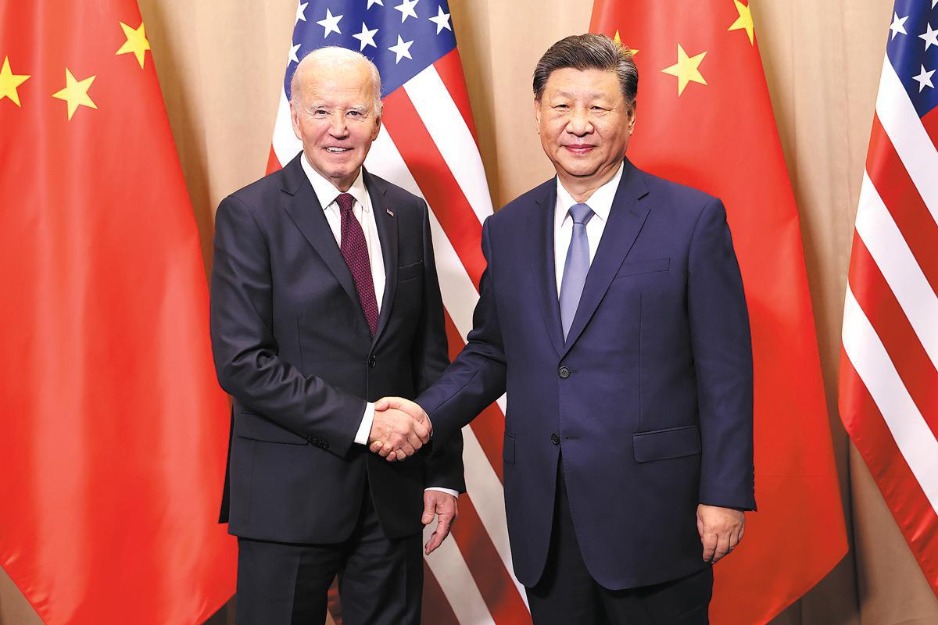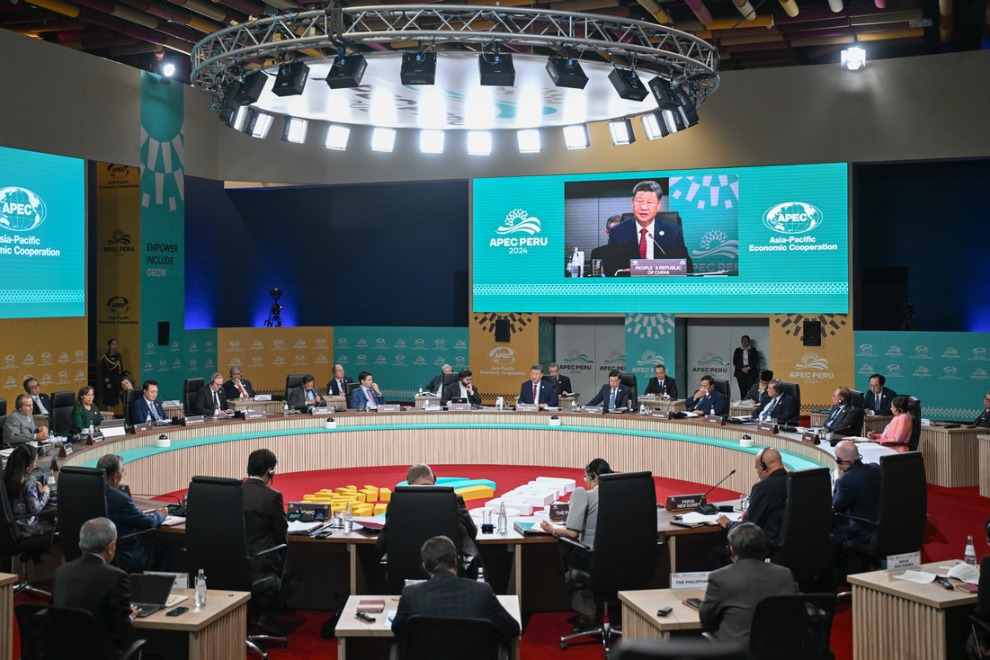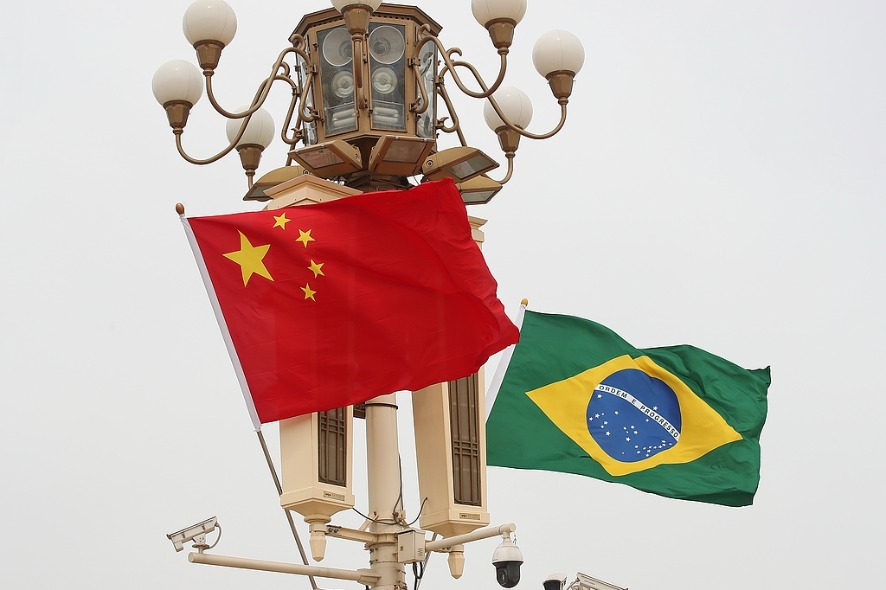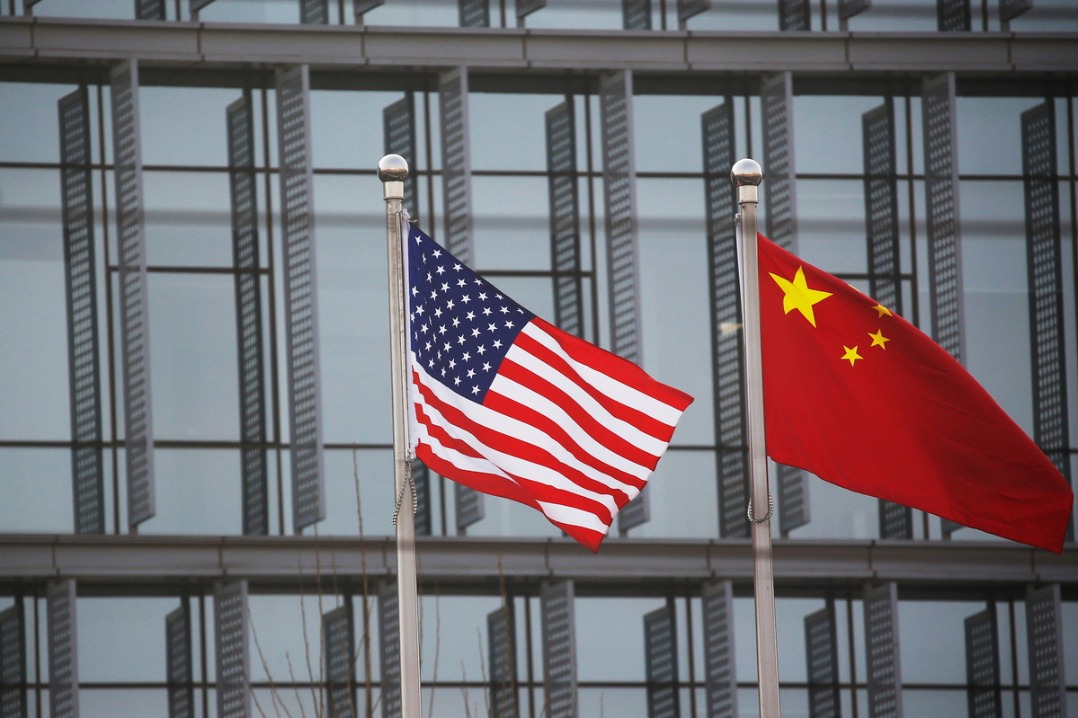Seven pillars of wisdom to uphold right way for China and US to get along well: China Daily editorial

In his meeting with US President Joe Biden in Lima, Peru, on Saturday, Chinese President Xi Jinping talked at length about the current state of China-US relations, which serves as both a succinct summary of their ties over the past four years and an important guidance for the future trajectory of bilateral interaction.
The meeting, held on the sidelines of the 31st APEC Economic Leaders' Meeting, is the third between the two presidents and follows their telephone call on April 2, 2024. With China-US ties at a pivotal moment and the world mired in conflicts and challenges, it is only natural that their exchange should draw international attention.
Summarizing the lessons of the past four years, Xi condensed them into seven pillars of wisdom to support healthy bilateral relations, namely the importance of having the correct strategic perception of the folly of a new Cold War; of matching words with deeds; of engaging with each other on an equal footing; of not challenging redlines and paramount principles; of increasing dialogue and cooperation; of building bridges to bring the two peoples closer together; and of the two countries shouldering their international responsibilities by carrying out constructive interactions.
Xi stressed that the overall trajectory of China-US relations over the past 45 years proved the validity of these experiences and inspirations, pointing out that although China-US relations have gone through ups and downs over the past four years, the relationship has remained stable on the whole and the two sides have engaged in dialogue and cooperation via more than 20 communication mechanisms that under head-of-state diplomacy's guidance have made positive achievements in such areas as technology, security, economy, trade, fiscal affairs, finance, military, counternarcotics, law enforcement, agriculture, climate change and people-to-people exchanges.
He also made it unequivocally clear that China desires amicable and cooperative relations, rather than a confrontationally competitive relationship.
Leaving no room for misinterpretation, Xi said that China's goal of a stable, healthy and sustainable China-US relationship remains unchanged; its commitment to mutual respect, peaceful coexistence and win-win cooperation as principles for handling China-US relations remains unchanged; its position of resolutely safeguarding its sovereignty, security and development interests remains unchanged; and its desire to carry forward the traditional friendship between the Chinese and American peoples remains unchanged.
Looking forward, it is to be hoped that the new US administration will engage in dialogue with China to expand cooperation and manage differences so as to sustain the hard-won momentum toward stability in the two countries' relations. It should not overstretch the national security concept, still less use it as a pretext for malicious moves to constrain the Chinese people's right to development and not foul the nest for the US and others by speculating on China's territory, sovereignty and maritime rights and interests.
Washington should know what are the most important guardrails and safety nets for bilateral ties as Beijing will remain firm and resolute in safeguarding China's territorial integrity and development interests and it will not sit idly by should its strategic security and core interests be under threat.
It is normal for countries to have some differences, and even disputes between them. To properly handle the differences and disputes between the US and China requires the leaders of the two countries to demonstrate skillful stewardship, recognizing that when the two countries treat each other as partners and seek common ground, their relationship makes considerable progress, producing dividends for both countries and the world at large. But on the contrary, if they regard each other as rivals and pursue vicious competition, they will roil the relationship or even set it back to the detriment of both countries and the world.
Beijing and Washington should therefore keep exploring the right way for the two countries to get along well with each other, for the good of themselves and the world at large.


































